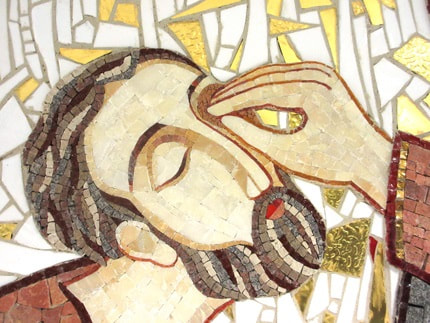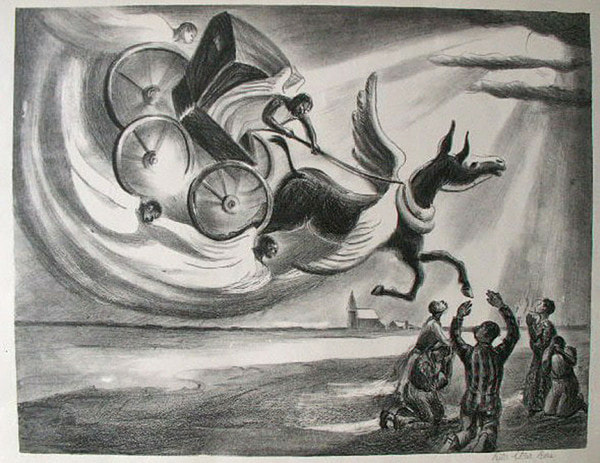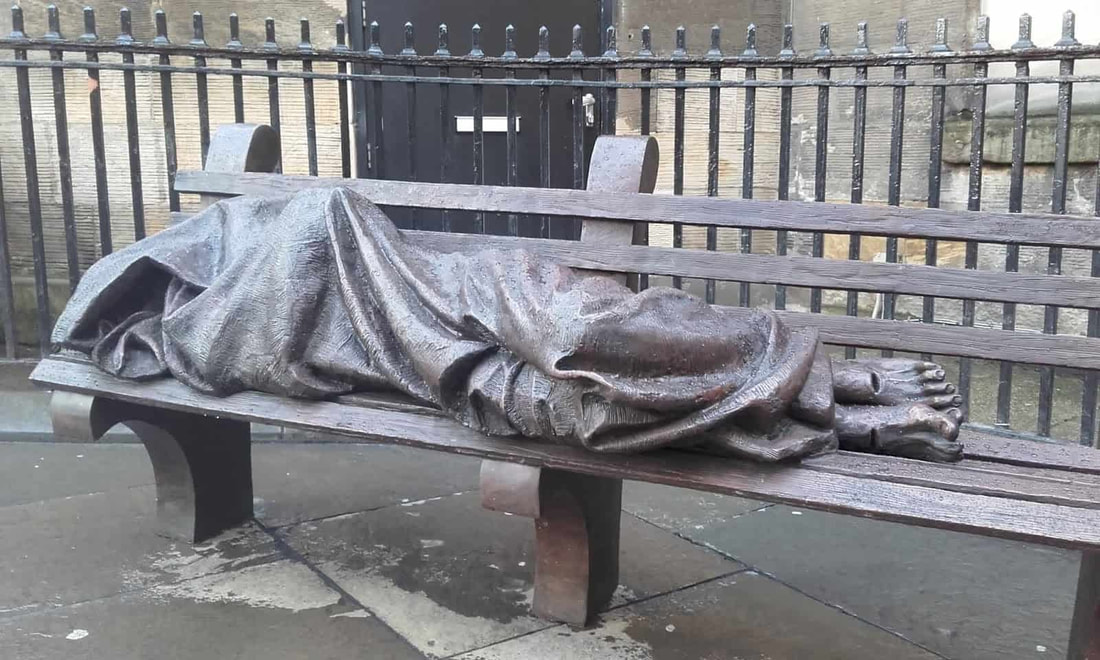|
Sixth Sunday After Epiphany “May the words of my mouth and the meditation of our hearts be acceptable to you, O Lord, my rock and my redeemer.” (Ps 19:14) The other night I stayed up to watch the first episode of Miracle Workers. It looked like it could be a bit funny and maybe a bit interesting. I’ve been watching The Good Place for a couple of seasons now and I have enjoyed that show. The Good Place is a story about trying to get four people into heaven – the Good Place. I’ll give Miracle Workers one my try, but the first episode was anything but funny or interesting. In Miracle Workers, Daniel Radcliffe of Harry Potter fame plays a low-level angel who alone is responsible for handling all of humanity’s prayers. There’s just this one angel and his office is located in the basement, of a heavenly office building. In his decrepit office, all alone, this forgotten angel contents himself every day by answering prayers like “where are my keys” or “where is my glove.” All of the other prayers are marked “impossible” and sent off to God, and God in Miracle Workers is a beer-drinking, despondent, defeated boss. He created earth and after millions of years of failed attempts to make earth a better place, he has finally given-up. All of those impossible prayers kept pouring into his office day after day, century after century, civilization after civilization, and God couldn’t take it anymore. In Miracle Workers, God is unable to answer most every important prayer because of the consequences of doing so. It was like another God-moving. In Bruce Almighty, when Bruce who is now filled with God’s power wants to impress his girlfriend, he pulls the moon closer to make an amazingly romantic full moon in the night sky. That good intention caused terrible floods all around the globe because the moon’s gravity effects ocean tides. I think Miracle Workers is going to play on this same idea that it’s really hard to be God, that it’s really hard to answer prayers. This quandary is not something recently discovered by Hollywood. This has been thought about as long as people have thought about God and wondered why bad things happen to good people. There’s even a theologically technical term for all of this. It’s theodicy. It’s the problem of believing in a good and caring God when we’re faced constantly with the reality of accidents, sickness, crimes and wars. How does a good God allow for such things? This is basically all of those impossible prayers sent up to God in Miracle Workers that drives God to drink heavily. Jesus was even asked about it. One time His disciples saw a man born blind and they asked Jesus whose sin caused this condition. (John 9:1+) They figured there must be some morally justifiable reason that could explain why this man suffered. They couldn’t accept that it was random, that his blindness had nothing to do with him deserving to be blind. That wouldn’t be fair. Jesus’ quick answer is that the man’s blindness is not a moral question, and this kind of suffering doesn’t fit into categories of fair or unfair. Another time Jesus was asked about people who suffered the intentional cruelty of a dictator or who died accidentally as a tower collapsed on them. (Luke 13:1+) And again Jesus said that such people did not suffer because they deserved it more than some others. Deserved is not part of this discussion. So some may ask, and justifiably, then why believe in God, why bother to pray to God? Well, one answer is what Paul was talking to us about in today’s first reading that Becky read. There’s the hope of our resurrection. We are people of faith. We believe that this life is not all that there is to who we are. Eternity awaits us on the other side of the funeral. This life is dwarfed by eternity. In the picture that only God can see, blessings will abound. We just sang the African-American spiritual "Swing Low Sweet Chariot." The hope of heaven is what helped sustain the slaves through the trials and tortures of their lives. We believe and we pray because, as Paul says, since Jesus resurrected, we can trust that so will we. But I hope there is more to our faith than patience, than waiting for heaven. And that’s where today’s Gospel enters the story. The Sermon on the Mount is famous; the Sermon on the Plain that we just read is not. I think a lot of us have at least heard of the phrase “The Beatitudes” from the Sermon on the Mount, but the Sermon on the Plain is stricter and maybe that’s why it’s not as famous. The Sermon on the Mount says, “Blessed are the poor in spirit,” but the Sermon on the Plain says more starkly “Blessed are the poor.” It’s not a religious quality; it’s an economic reality. The Sermon on the Mount says, “Blessed are those who hunger and thirst for righteousness,” while on the Plain it’s only “Blessed are you who are hungry now.” And to add to the impact of these statements, the Sermon on the Plain says, “Woe to the rich” and “Woe to you who are full now.” This is not only spirituality. This is a social-political-economic condemnation of a system that leaves too many with nothing. The Sermon on the Plain and the Sermon on the Mount come from the same tradition of Jesus-sayings, but the Sermon on the Plain is told by Luke and Luke’s Jesus is agitated and distressed and bothered and not wanting to wait until heaven makes things right. The Sermon on the Plain is the Jesus of all the activists in the world, the reformers, the ones who want to make changes for the better, the ones who will not sit and wait for heaven, the ones who are offended by inequality and injustice, the ones who take seriously the words “Thy kingdom come, Thy will be done on earth as it is in heaven.” This is hard and it demands something concrete from us now to change things for the better. The Sermon on the Plain is Jesus standing on the level with everyone who will listen. It’s Jesus not asking us to do anything that He is not committed to doing fully and completely. It’s not Jesus the general giving orders from the rear. It’s Jesus the sergeant fighting by our side. I don’t know in what direction Miracle Workers will go with its story of a God ready to give us all up, but in the first episode God is overwhelmed because God has nothing to do with us. God sits in heaven; we struggle on earth; and never the twain shall meet. The prayers are only words not people.
But Jesus is the full-fledged opposite of this kind of God. Jesus can’t alter creation with a miracle every time we ask for one, but Jesus can stand beside us when we hurt, and inspire us to make a difference so that hurting stops. Jesus is the power of God standing with us and giving us the courage and conviction to believe that we can make a difference. It’s hard. Suffering still surrounds us. But Jesus is always going to work with us if we work with Him, and just maybe this is how God answers all those impossible prayers – by inspiring and empowering us to make a difference. Mary Luti is a UCC seminary teacher and I share her prayer in closing: “God, may we find the work that is ours to do, and the courage and grace to do it.” In Jesus’ name we pray. Amen.
0 Comments
Leave a Reply. |
NewsFaith, love and chitchat. Categories
All
Archives
June 2024
Follow
|
|
SERVICE TIMES
Sunday 9:30-10:30am Children Sunday School 9:30-10:30am Nursery care available during worship DONATE Make a single or recurring contribution by clicking here |
FOLLOW
|





 RSS Feed
RSS Feed
